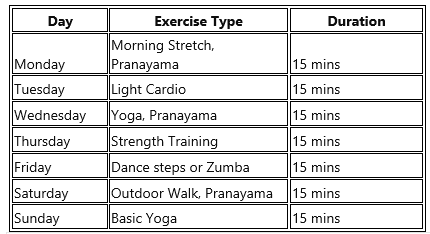

The Joy of Motion: How Exercise Fuels Happiness
A few years ago, I was in a rut. Juggling a demanding job and personal commitments left me feeling drained and unmotivated. One day, on a whim, I decided to start running a few miles and start some work out in morning. The first few days were tough, and I questioned my decision every step of the way. But I persisted. Gradually, running became more than just a form of exercise; it became a sanctuary.
In today's fast-paced world, finding pockets of joy can sometimes feel like chasing shadows. However, one of the most reliable and scientifically backed sources of happiness is well within our reach—exercise. This connection between physical activity and emotional well-being is not just a fitness myth but a powerful truth that has the potential to transform lives. Let's dive into the exhilarating relationship between exercise and happiness and discover how moving our bodies can lift our spirits.
The Brain's Response to Exercise
Our bodies go through a lot of biochemical changes when we exercise, and these changes have an immediate effect on our emotional and mental states. "Feel-good" hormones called endorphins are released, and this is one of the biggest effects. Natural mood enhancers and painkillers, endorphins help lower stress levels and produce a euphoric feeling that's referred to as the "runner's high."
In addition to endorphins, exercise causes the release of neurotransmitters like serotonin and dopamine. These chemicals are important for regulating mood, which is why antidepressant medications frequently target them. Regular exercise boosts the production and uptake of these neurotransmitters, improving mood and fostering overall emotional well-being.
Exercise triggers the release of neurotransmitters such as dopamine and serotonin in addition to endorphins. Antidepressant drugs often target these chemicals because they are essential for mood regulation. Frequent exercise increases the synthesis and absorption of these neurotransmitters, which elevates mood and promotes emotional health in general.
Reducing Stress and Anxiety
Chronic stress and anxiety are major impediments to happiness, and exercise is a powerful tool in combating these mental health challenges. Physical activity triggers the body's stress response initially, but over time, it helps to lower the levels of stress hormones like cortisol. Regular exercise also promotes better sleep, which is essential for stress management and emotional stability.
Boosting Self-Esteem and Cognitive Function
Exercise boosts our self-esteem and positive body image in addition to improving our physical appearance. Reaching fitness objectives, such as learning a new yoga pose, running a particular distance, or lifting a particular weight, can greatly increase one's sense of worth and confidence. Happier people feel more accomplished and capable of handling life's challenges.
Exercise has also been demonstrated to enhance cognitive performance and lessen anxiety and depressive symptoms. The brain receives more blood flow when one is physically active, which encourages the development of new neurons and improves brain function overall. Improved memory, increased focus, and an upbeat attitude on life can result from this.
Practical Ways to Incorporate Exercise into Your Life
Find Activities You Enjoy
The key to maintaining a regular exercise routine is to find activities you genuinely enjoy. This could be anything from dancing, hiking, swimming, cycling, or even playing a sport. When you engage in activities that you find fun, you're more likely to stick with them and reap the happiness benefits.
Start Small and Build Gradually
If you're new to exercise, it's important to start small and gradually increase the intensity and duration of your workouts. Setting realistic goals and celebrating small milestones can keep you motivated and prevent burnout.
Make It Social
The benefits of physical activity on happiness can be amplified by exercising with others. Taking part in group sports, taking a fitness class, or just working out with a friend can boost motivation, offer social support, and enhance the experience.
Include Exercise in Your Everyday Schedule
It can be difficult to find time to exercise, but it can be simpler to incorporate physical activity into your daily schedule. This could be walking or biking to work, using the stairs rather than the elevator, or planning regular workouts like any other important appointment.
Here are some A week rota for your workout, try to spare some time for your health…
The link between exercise and happiness is clear. It affects our brain, stress, self-esteem, and mental health. Regular exercise can boost well-being and bring joy. Whether it's a walk, weightlifting, or dancing, find what suits you. Enjoy the journey, celebrate progress, and feel the change.
Happy reading....
visit
www.lifethicss.com
The Joy of Motion: How Exercise Fuels Happiness
www.lifethicss.com






